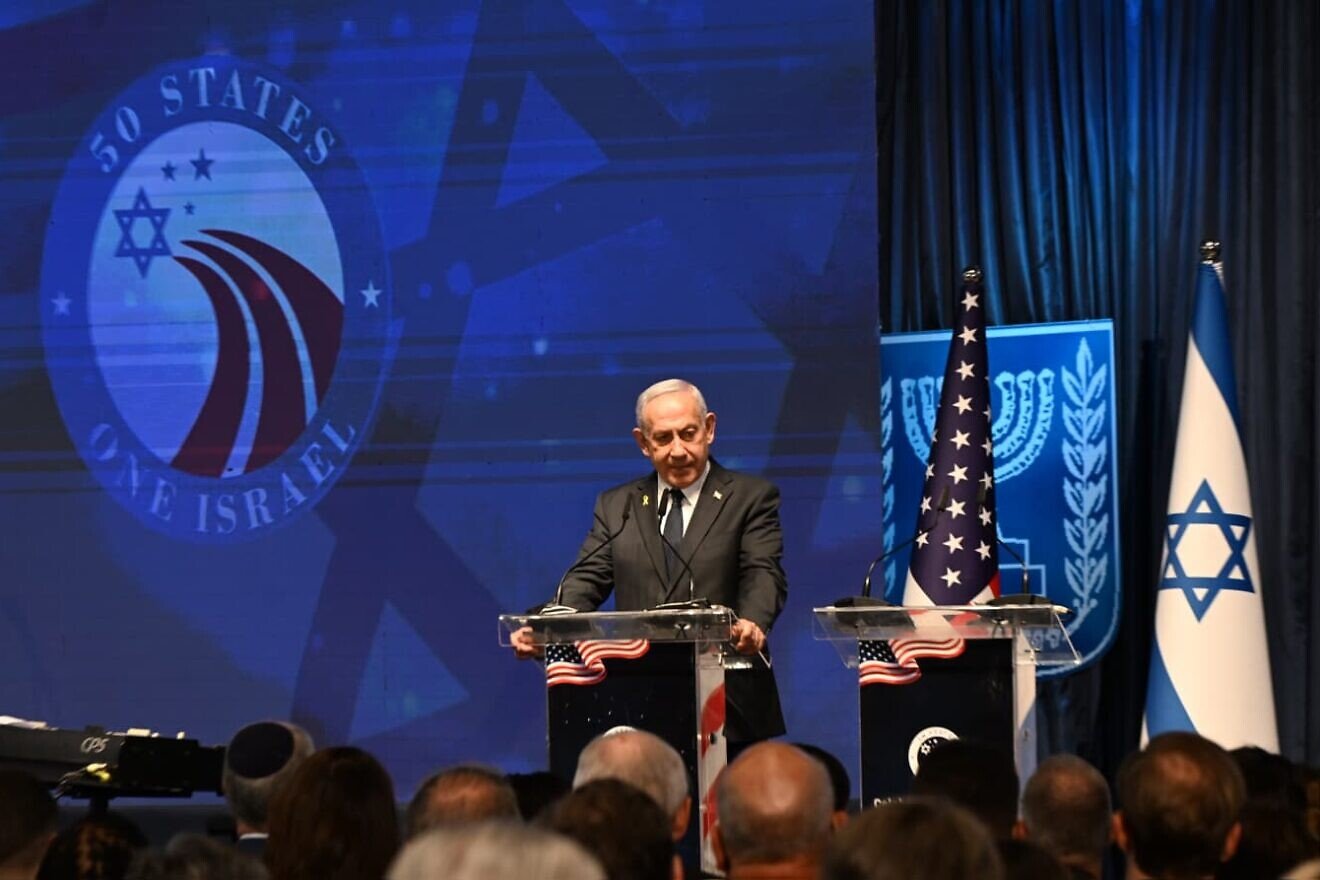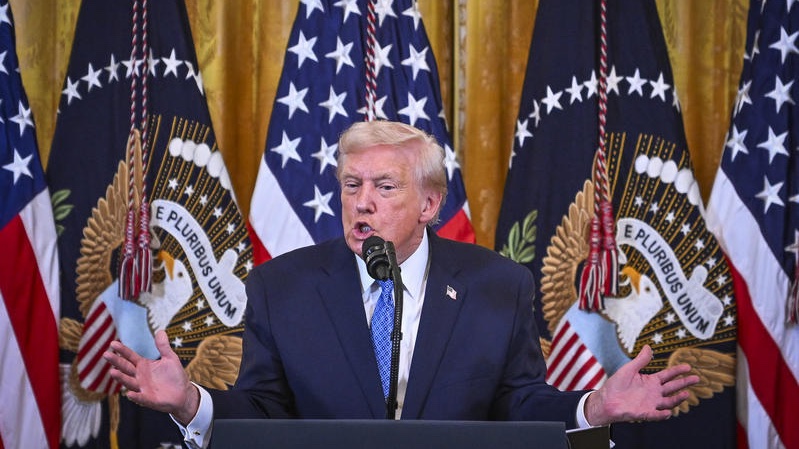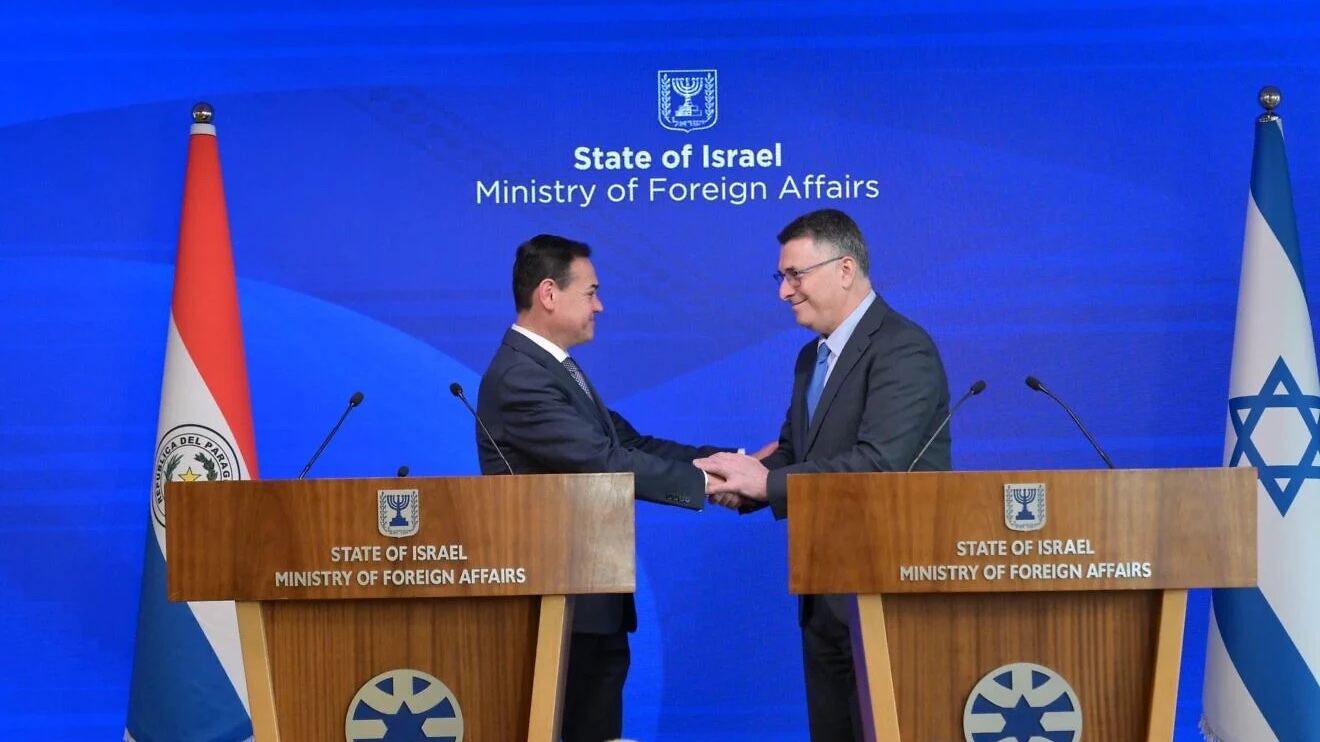(JNS) On Sept. 15, at the Ministry of Foreign Affairs in Jerusalem, Israeli Prime Minister Benjamin Netanyahu delivered a stark warning in his remarks before the largest-ever delegation of American legislators visiting Israel. He accused China and Qatar of waging a coordinated campaign to undermine Israel’s legitimacy.
“We will have to do several things to break loose from this siege that is organized by a few states,” Netanyahu declared. “One is China and the other is Qatar and they are organizing an attack on Israel’s legitimacy in the social media of the Western world and the United States.”
The prime minister stressed that Israel must mount an active defense. “We will have to counter it and we will counter it with our own efforts,” he added, noting that the campaign is already visible on platforms like TikTok. “Countries like Qatar and China invest huge sums to influence Western media with an anti-Israel agenda, using bots, AI, and publications. You open your phone, and you are bombarded with this, especially on TikTok. It is much more powerful than traditional media.”
Netanyahu’s concern reflects growing recognition of Qatar’s role in shaping narratives about Israel and Hamas. Udi Levi, the former head of the Mossad’s Economic Warfare and Financial Intelligence Division, also warned at the International Institute for Counter-Terrorism Policy (ICT) conference at Reichman University in Herzliya this week that Qatar’s project is nothing less than civilizational.
“Qatar has built, is building and will continue to build every possible infrastructure to change the West culturally, socially and economically, in order to fulfill the Muslim Brotherhood’s doctrine of restoring the Islamic empire,” Levi said.
This influence has been documented before. In Europe, the “Qatargate” scandal exposed how Qatari lobbying, corruption, and money laundering penetrated the European Parliament.
The same dynamics are now visible in Israel, especially with the ongoing “Qatargate” scandal involving former Netanyahu adviser Jonathan Urich and former spokesman Eli Feldstein, both accused of receiving money to promote Qatar.
As Irina Tsukerman, a geopolitical analyst, noted to JNS, “Qatargate in Israel is not just a shadow of the European scandal; it reflects the infiltration of Qatari funds, lobbying, and narrative engineering into Israeli circles themselves.”
Qatar’s media arm, Al Jazeera, plays a central role. In Arabic, it glorifies Hamas as defenders of the Palestinian cause. In English, it emphasizes human rights and civilian suffering. This dual strategy ensures that narratives hostile to Israel resonate across audiences, repackaged into viral content for TikTok and X by networks of Qatar-linked influencers and NGOs.
If Qatar supplies the messaging, China provides the machinery. TikTok’s algorithm is more than a publishing tool; it is, in Tsukerman’s words, “an artificial intelligence designed to maximize engagement by tailoring content to each user’s emotional and cognitive triggers.”
See related: China’s Growing Influence on the Global Stage Is ‘Mixed Bag’ for Israel, Experts Say
That makes it a powerful tool for cognitive warfare. Clips highlighting Palestinian suffering spread virally, reinforcing perceptions of Israel as an aggressor, particularly among Western youth.
China’s motivations are primarily strategic. According to Wesley Hill, assistant director at the Energy, Growth, and Security Program at the International Tax and Investment Center in Washington, DC, Beijing’s calculus is tied to its rivalry with Washington.
“China portrays itself as a responsible alternative to the United States,” Hill explained to JNS, “and the unpopularity of Israel amongst many nations in the Global South … means that China being even performatively critical towards Israel can increase its international reach.”
By aligning with Palestinian narratives, China strengthens ties with energy-rich Arab states, courts the Global South, and positions itself as the champion of the oppressed.
Tsukerman further noted that China’s campaign is not just about Israel but about undermining US credibility.
“Every viral video that paints Israel as brutal or colonial is, in Beijing’s strategic vision, also a blow against Washington’s claim to be the leader of a rules-based order,” she told JNS.
This partnership between Qatar and China extends into cyberspace. Joint hacking operations aim not only to steal data but to weaponize it. Leaked documents, sometimes manipulated, are pushed through sympathetic outlets like Al Jazeera, then amplified across TikTok, where algorithms ensure the content reaches audiences most likely to believe it. This seamless fusion of cyber intrusions and media manipulation exemplifies what experts now describe as “cognitive warfare.”
Here, according to Tsukerman, Russia provided the blueprint, but China and Qatar have refined the model with artificial intelligence, allowing for precise microtargeting. Instead of flooding the internet indiscriminately, adversaries now shape content to exploit individual psychological vulnerabilities.
A particularly dangerous element of China’s information war has been the mainstreaming of antisemitic tropes. On Chinese platforms like Weibo, state-linked narratives increasingly slide into conspiratorial claims about Jewish financial power or hidden influence. These messages resonate abroad, especially in regions where Soviet-influenced propaganda left a deep antisemitic legacy.
While the two countries’ motivations differ, their interests overlap.
As Hill explained, “China and Qatar cooperate mostly because Qatar is a player on the international energy market, and the I2U2 agreement (Israel-India-UAE-USA) is a shared geopolitical problem. This fairly new convergence in geopolitical and geoeconomic interests means that previous routine behavior, such as criticizing Israel, now has a far greater incentive for cooperation.”
For Israel, the challenge is immense. Battles are no longer confined to Gaza or the northern border but are fought in algorithm-driven feeds that shape global opinion. As Tsukerman puts it, “Perception is weaponized as effectively as rockets.”
Israel must now confront the fact that its adversaries wield emotional storytelling while it has relied too heavily on facts and legal arguments. Its outreach often feels sterile compared to the emotive appeals of Hamas and its sponsors. In Tsukerman’s view, the lack of credible Arab and Muslim voices in Israel’s own information strategy further compounds this disadvantage.
If Israel fails to adapt, it will continue fighting a war of perception with outdated tools, while China and Qatar deploy the full arsenal of artificial intelligence, cyber capabilities, and emotionally resonant narratives to reshape global attitudes against it.
“Israel’s great strategic failing has been its neglect of the emotive power of such appeals. For decades, its public diplomacy has relied heavily on facts, historical claims, and appeals to international law. These approaches may resonate in Western policy circles but fall flat in regions where identity, honor, and solidarity are the primary drivers of opinion,” Tsukerman said.
“While Hamas, Qatar and now China engage in emotionally charged storytelling, Israel has responded with sterile rebuttals that fail to move hearts, even if they win some debates among technocrats,” she added.
According to Tsukerman, Israel’s task now is “not only to secure its borders but to rethink its strategy in the cognitive domain.”
“Without recalibrating to this reality, Israel will continue to fight a war of perception with the tools of a bygone era, while its adversaries deploy the full arsenal of modern technology and cultural fluency to devastating effect,” she concluded.
Want more news from Israel?
Click Here to sign up for our FREE daily email updates














